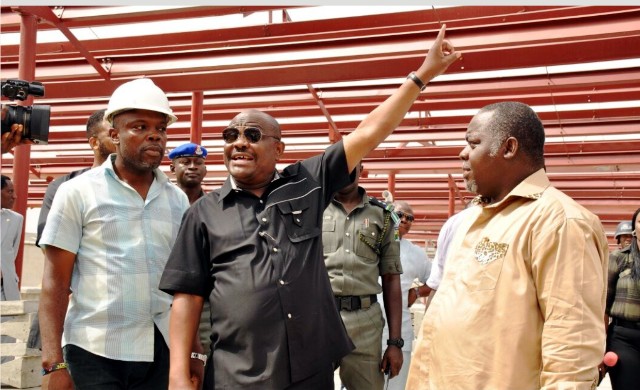Business
Political Risk Threatens FG’s ERGP -Expert

An economist, Prof. Uche Uwaleke, yesterday identified political risk as a major threat to the successful implementation of government Economic Recovery and Growth Plan (ERGP).
Uwaleke, the Head of Banking and Finance, Nasarawa State University, made this known in an interview with newsmen in Abuja.
“Indeed, numerous other vulnerabilities remain but the biggest threat to the ERGP, in my view, is the political risk that received no mention under the section.
“Nigeria’s experience over the years has shown that implementation of development plans suffer neglect whenever there is a change in government.
“The political will argument holds water only in the context of stability in government when the conceiver (the President) is in office throughout the Plan period.
“This condition is necessary for the success of the National plan,’’ he said.
According to Uwaleke, a review of key economic variables over the years indicated that the penultimate and ultimate election years affect economic performance.
The economist said that government spending usually increased in an election year, adding that this usually fuels inflation rather than encourages growth.
He said that in 2011 and 2015, Nigeria’s inflation rate increased due to high expenditure associated with the elections.
The economist said that the forthcoming 2019 election posed a threat to the ERGP’s goal of subduing inflation to single digit level by 2020.
He said that the success of the ERGP would depend not only on its implementation but also on the commitment of the succeeding administration to see it through to the terminal year.
Uwaleke, however, suggested that the country needed an enabling law to back up the ERGP.
He said, “The idea of setting up a Delivery Unit in the Presidency to assist the Ministry of Budget and National Planning in overseeing the ERGP implementation is good but not sufficient.
“If the Delivery Unit is not a creation of the Law, it lacks the capacity to discharge its duties.
“To this end, the Federal Government as a matter of urgency, should forward a Bill to be known as the ‘’Economic Recovery and Growth Bill’’ to the National Assembly.
“The Bill should take care of all issues specific to the ERGP distinct from the current Fiscal Responsibility Act of 2007 which focuses on annual budgets and the three year Medium Term Expenditure Framework.
“ The government has barely one more year to prove that the ERGP will not go the way of its forebears.
“ One of the key deliverables of the Plan is to reduce petroleum product imports by 60 per cent in 2018.
“Therefore, putting in place an enabling law and passing the Petroleum Industry Bill will safeguard the country against the major threat to the ERGP.
The Tide gathered that the Federal Government recently unveiled the ERGP, which contained the road map for Nigeria’s economic development.
The four-year plan (2017-2020) envisages that by 2020, ‘’Nigeria would have made significant progress towards achieving structural economic change with a more diversified and inclusive economy’’.
According to the plan, real GDP would grow by 4.6 per cent on average over the plan period while inflation rate would move to single digit by 2020.
The plan outlines initiatives such as boosting oil production to 2.5 million barrels per day by 2020, privatizing select public enterprises/assets and revamping local refineries to reduce petroleum product imports by 60 per cent by 2018.
Following the implementation of the plan, unemployment would reduce from 13.9 per cent as of Q3 2016 to 11.23 per cent by 2020.
Transport
Automated Points Concession : FAAN Workers Gave 72hrs To Revise Decisions In PH

Transport
FAAN Announces Pick-Up Points for Go-Cashless Cards

Business
Fidelity Bank To Empower Women With Sustainable Entrepreneurship Skills, HAP2.0
-
Politics3 days ago
2027: NIGERIANS FAULT INEC ON DIGITAL MEMBERSHIP REGISTER DIRECTIVE
-

 Environment3 days ago
Environment3 days agoLAWMA Director Says Sweeping Reforms Have Improved Waste Collection
-
Politics3 days ago
LP Crisis: Ex-NWC Member Dumps Dumps Abure Faction
-

 Politics3 days ago
Politics3 days agoUmahi Dismisses Allegations On Social Media, Insists On Projects Delivery
-

 Sports3 days ago
Sports3 days agoAbia Not Sure To Secure continental Ticket
-
Sports3 days ago
La Liga: Yamal Records First Career Hat-trick
-
Politics3 days ago
NATASHA ELECTRIC VEHICLES INITIATIVE IN KOGI CENTRAL
-
Politics3 days ago
IT’S A LIE, G-5 GOVS DIDN’T WIN ELECTION FOR TINUBU – SOWUNMI

